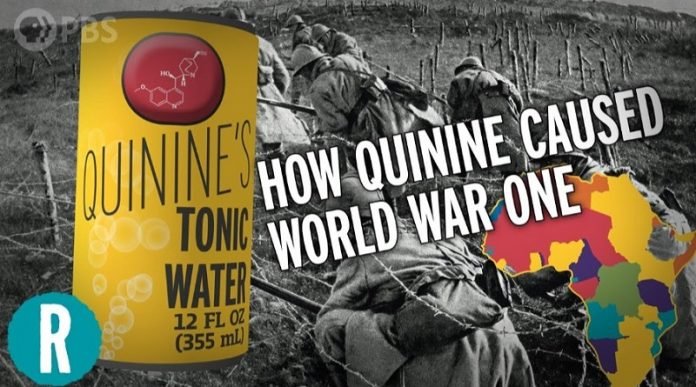
Can medicine cause a war?
When chemists isolated a new compound from the bark of a South American tree, they had no idea they were changing world history, and cocktails, forever.
If we look at how the bark of the cinchona tree is used to treat malaria, we can see the cutting-edge chemistry of quinine binding an enzyme essential for the malaria parasite’s survival.
But if we look from another angle, we can see how that coincidental affinity may have been a major contributing factor to World War I.
Reactions is a video series produced by the American Chemical Society and PBS Digital Studios.
The American Chemical Society (ACS) is a nonprofit organization chartered by the U.S. Congress.
ACS’ mission is to advance the broader chemistry enterprise and its practitioners for the benefit of Earth and all its people.
ACS’ main offices are in Washington, D.C., and Columbus, Ohio.



